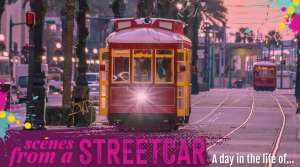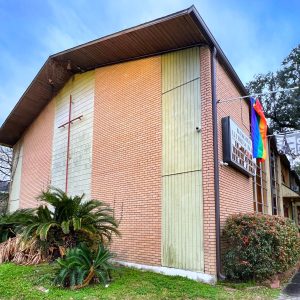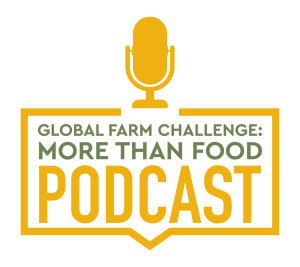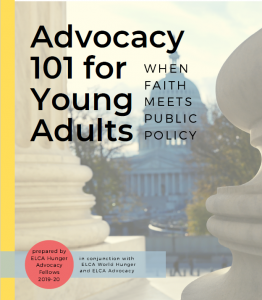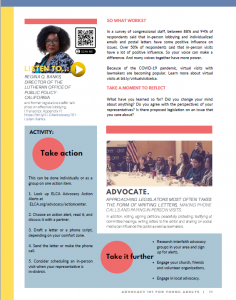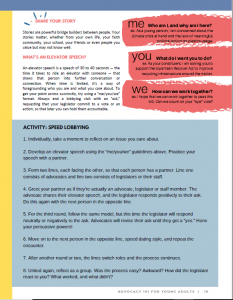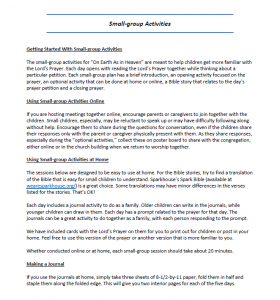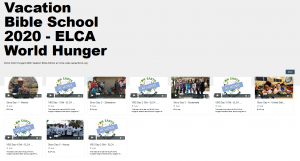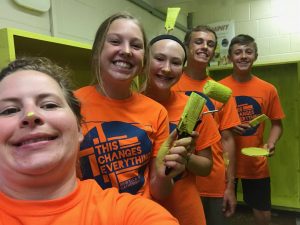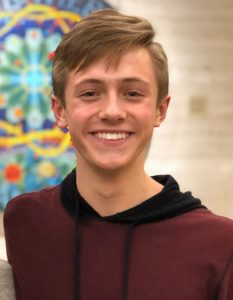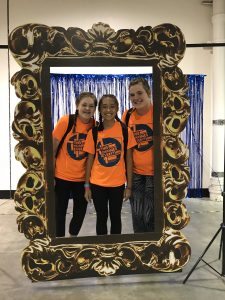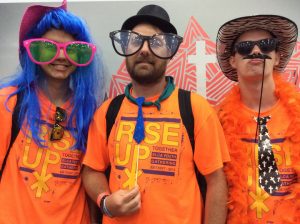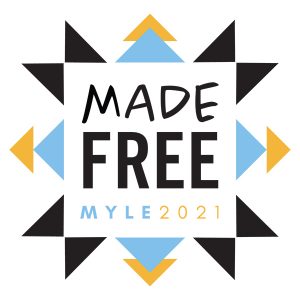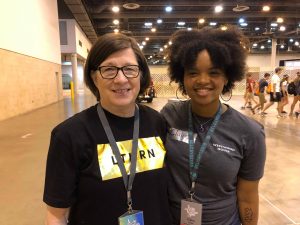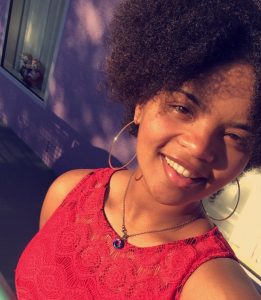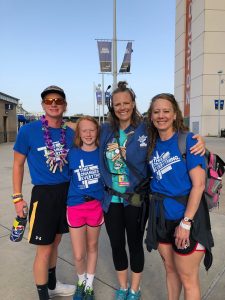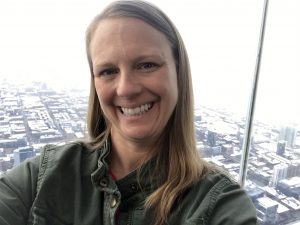Monday, July 15 – Day 3 from MYLE and the tAble
The last full day of MYLE and the tAble was brimming with connection, creativity, and community spirit.
At MYLE, it was “Created to Be” Spirit Day—a celebration of individuality, purpose, and potential. Participants expressed their identities through clothing and accessories reflecting who they are or what they’re passionate about, from motivational t-shirts to cultural attire and hobby gear, embracing uniqueness and collective strengths.
During morning worship, Dr. Moses Penumaka, president of the ELCA Association of Asians and Pacific Islanders, spoke to MYLE participants about our freedom in Christ, saying, “We are created to be free to love the world, heal the world, and embrace diversity, work for equity, and be inclusive.” Quoting Martin Luther, he reminded us, “God does not need your good works, but your neighbor does.” His words inspire us to serve our neighbors with love and embrace the freedom we have in Christ.
Meanwhile, students from the tAble went on a field trip to the Smoothie King Center. This behind-the-scenes look allowed students to familiarize themselves and become more comfortable in the space where Mass Gathering will take place. Experiencing the arena while it was empty helped prepare them for the excitement of being among 16,000+ participants, ensuring they feel comfortable and ready.
The fruits of the past three days spent in community were evident. Friendships blossomed as groups intermingled during free time, shared ice cream, and participated in workshops. The spoken word vibe-circle resonated with the wisdom, “You can only choose what you bring to each day. You can’t choose what everyone else brings.”
Students from both MYLE and the tAble spent time in Community Life together, engaging in holy play on giant inflatables. Witnessing the inclusive and gracious community forming between the two groups was a joy, with smiles and laughter filling the space.
Creativity was celebrated in many ways all day, from community art projects to talent showcases. During craft time at the tAble, students discussed the expansive love of God, sharing their faith in brave and meaningful conversations.
At the MYLE Village Showcase, we learned about positive disruption in Puerto Rico through video and skit, enjoyed a beautiful dance from a Minnesota Swahili group, and learned to say “Praise the Lord” in Swahili: Bwana Yesu Asifiwe. Joe Davis shared a vulnerable moment about feeling free, reminding us that freedom is cultivated in community. We need to practice it every day, shouting from the bottom of our hearts to the top of our lungs: “I am free. You are free. We are Free… Because God says so.”
From vocals and dance moves to Beethoven on the piano, stand-up jokes, poetry readings, cup stacking skills, and skits, the Variety Show at the tAble was a testament to the love and support these new friends shared. One caregiver delivered an incredible rendition of “This is Me” from The Greatest Showman, with powerful lyrics resonating with everyone: “I am brave, I am bruised, I am who I’m meant to be, this is me…I’m marching on to the beat I drum. I’m not scared to be seen. I make no apologies, this is me”
As participants enjoyed their day in community, the convention center buzzed with activity as volunteers assembled, and participants began to check in. Gathering Directors, Deacon Tammy Jones West and Deacon Jess Liles, commissioned around 600 volunteers for the Gathering. Bishop Eaton expressed her deepest gratitude on behalf of the ELCA, even taking a selfie with all the volunteers!
Today was a testament to the power of community, the beauty of embracing who we are, and the joy of serving and supporting one another. Let’s carry this spirit forward, shining brightly and serving freely as we continue to create, connect, and grow together.

